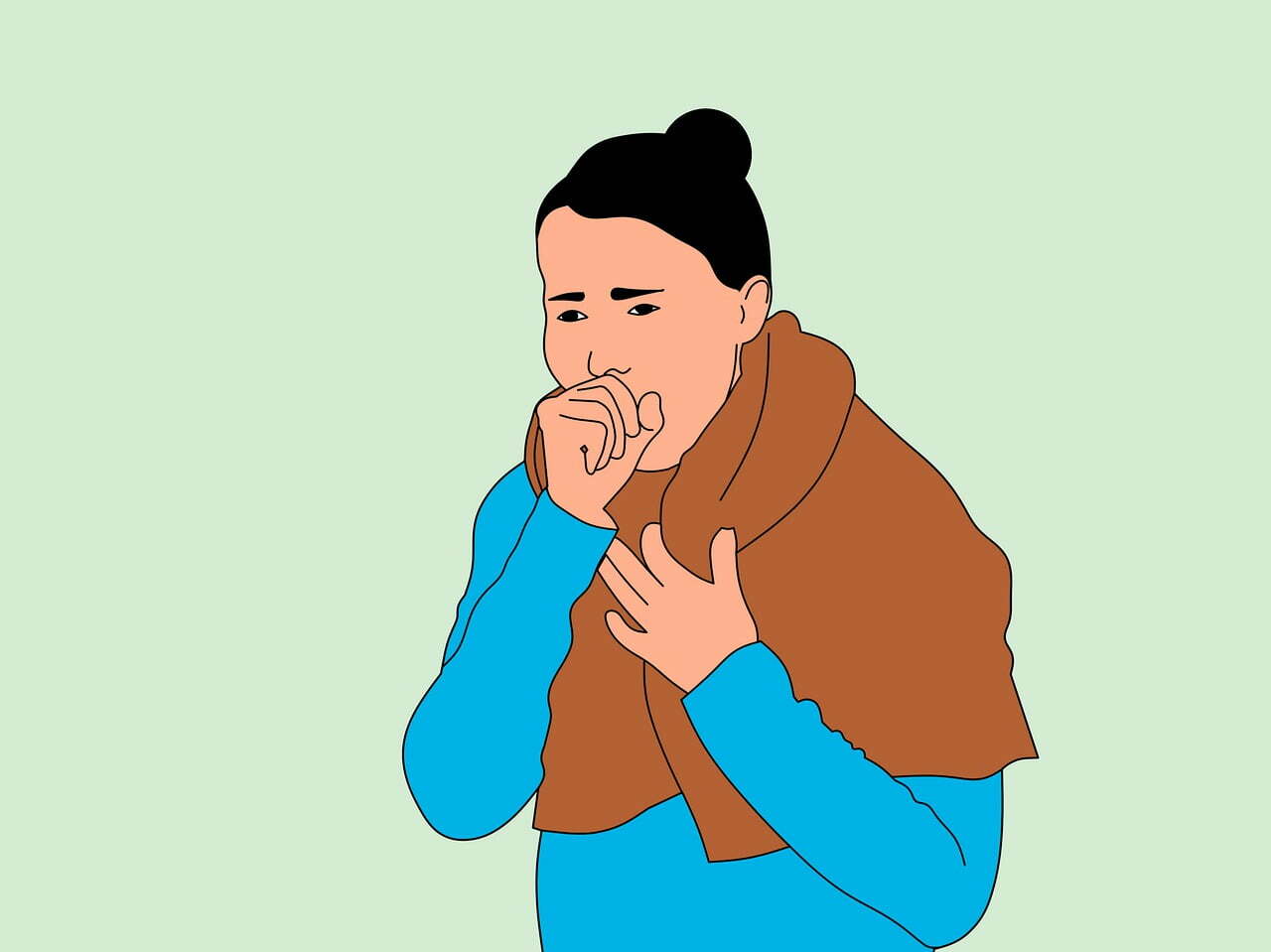Phlegm also called sputum or Balgam. It is a sticky substance that is produced by the respiratory system to help trap and remove harmful particles, such as bacteria, viruses, and dust, from the lungs. While a small amount of sputum is normal, coughing up excess amounts of it can be a sign of an underlying health condition. In this article, we will explore the common causes of sputum and what you can do to manage it.

1. Understanding Phlegm
Phlegm is a mucus-like substance that is produced by the cells lining the respiratory system. It is made up of water, glycoproteins, and other substances, and plays an important role in protecting the lungs from harmful particles. Normally, a small amount of sputum is produced each day, which is then cleared away by the body’s natural mechanisms, such as swallowing or coughing.
2. Respiratory Infections as a Cause of Phlegm
Basically, Respiratory infections are one of the most common causes of excess phlegm. When you have a cold, flu, bronchitis, or pneumonia, your body produces more sputum than usual to help fight off the infection. This excess sputum can then build up in the airways and cause coughing.
Bronchitis
Bronchitis is a condition where the bronchial tubes, which are the air passages that lead to the lungs, become inflamed. This inflammation can cause a persistent cough, wheezing, and the production of excess phlegm.
Pneumonia
Pneumonia is a more serious respiratory infection that affects the lungs themselves. It can cause symptoms such as a high fever, chest pain, and coughing up green or yellow sputum.
Flu
Influenza, or the flu, is a viral infection that can cause a range of symptoms, including fever, headache, and coughing up phlegm.
3. Allergies and Asthma
According previous researchs, Allergies and asthma are conditions that can cause inflammation in the airways, leading to excess phlegm production and coughing. Allergies can be triggered by a variety of factors, such as pollen, dust, or pet dander. Asthma, on the other hand, is a chronic respiratory condition that causes the airways to narrow and become inflamed, making it difficult to breathe.
4. Smoking and Secondhand Smoke Exposure
Smoking and exposure to secondhand smoke can cause irritation and inflammation in the respiratory system, leading to the production of excess phlegm. This can cause chronic coughing and an increased risk of respiratory infections.
5. Gastroesophageal Reflux Disease (GERD)
Gastroesophageal reflux disease, or GERD, is a condition where stomach acid flows back into the esophagus, causing irritation and inflammation. This can lead to the production of excess phlegm, as well as other symptoms such as heartburn and difficulty swallowing.
6. Environmental Irritants
Exposure to environmental irritants such as pollution, chemicals, and dust can cause inflammation in the respiratory system and lead to the production of excess phlegm. Individuals who work in industries such as mining, construction, or agriculture may be at a higher risk of exposure to these irritants and develop respiratory symptoms.
7. Chronic Obstructive Pulmonary Disease (COPD)
Chronic obstructive pulmonary disease, or COPD, is a group of conditions that affect the lungs and cause difficulty breathing. This includes conditions such as chronic bronchitis and emphysema. Individuals with COPD often produce excess phlegm and experience chronic coughing.
8. Tips for Managing Phlegm
If you are coughing up excess phlegm, there are several things you can do to manage your symptoms. These include:
- Staying hydrated by drinking plenty of fluids
- Using a humidifier or taking a steamy shower to help loosen the sputum
- Using over-the-counter expectorant medications to help clear the sputum
- Avoiding environmental irritants, such as pollution or chemicals
- Quitting smoking or avoiding exposure to secondhand smoke
- Managing any underlying health conditions, such as allergies or asthma, with medication and lifestyle changes
9. When to See a Doctor
In some cases, coughing up phlegm can be a sign of a more serious health condition. You should see a doctor if you experience any of the following symptoms:
- Coughing up blood
- Chest pain
- Shortness of breath
- Wheezing
- Difficulty swallowing
- Fever or chills
- Unintentional weight loss
10. Conclusion
After all, Coughing up phlegm can be a sign of several underlying health conditions, including respiratory infections, allergies, asthma, smoking, GERD, environmental irritants, and COPD. By understanding the common causes of Balgam and taking steps to manage your symptoms, you can improve your respiratory health and overall well-being.
11. FAQs
Can allergies cause phlegm?
Yes, allergies can cause inflammation in the airways and lead to the production of excess phlegm.
Is it normal to cough up phlegm every day?
Coughing up a small amount of phlegm each day is normal, but if you are producing excess amounts of sputum, it may be a sign of an underlying health condition.
Can smoking cause phlegm even if you don’t have any other respiratory symptoms?
Yes, smoking can cause inflammation in the respiratory system and lead to the production of excess phlegm, even if you do not have any other respiratory symptoms.
Is there a difference between phlegm and mucus?
Phlegm is a type of mucus that is produced specifically by the respiratory system.
Can phlegm be a sign of lung cancer?
Coughing up sputum can be a symptom of lung cancer, but it can also be caused by other less serious health conditions. It is important to see a doctor if you experience any concerning symptoms.
